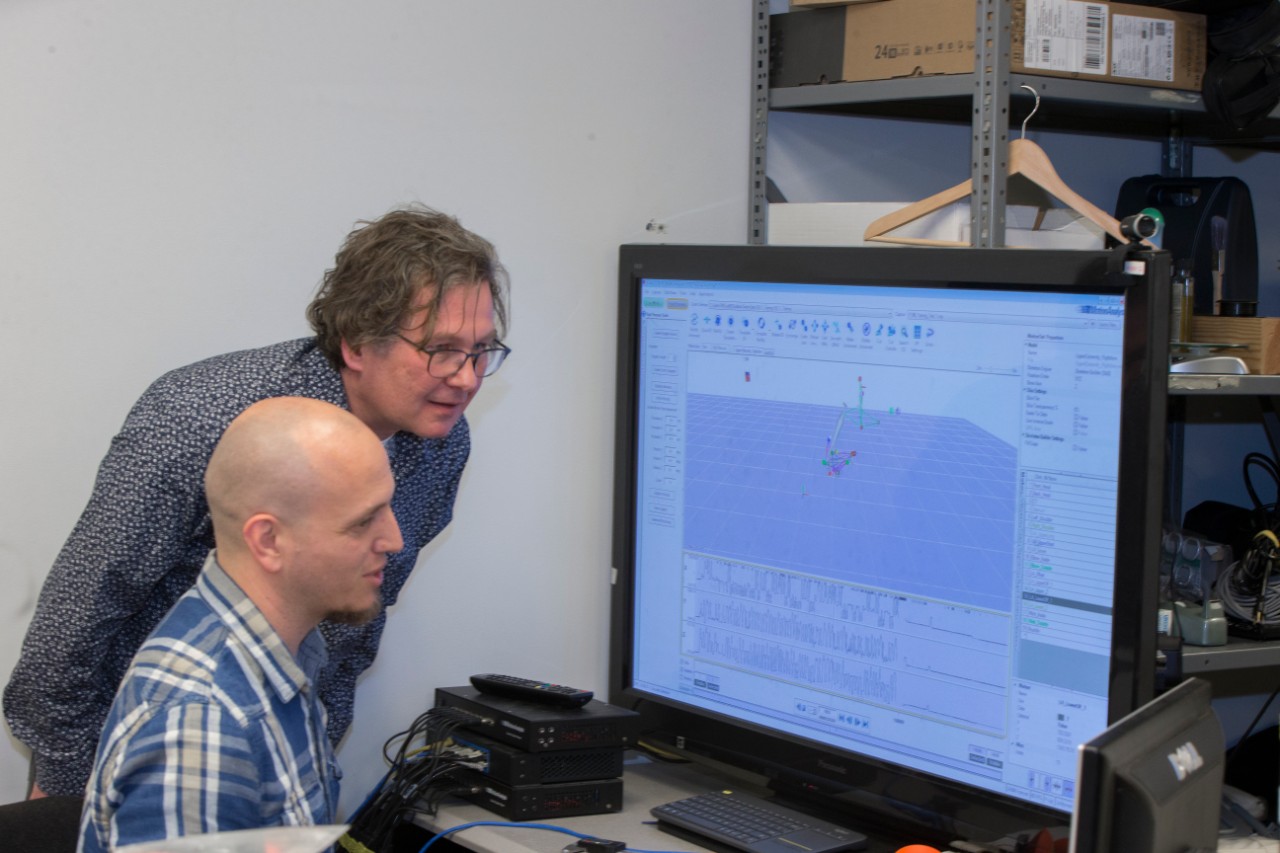
Smart technology is not making us dumber
UC social/behavioral expert Anthony Chemero explains that tech doesn't dumb us down
There are plenty of negatives associated with smart technology — tech neck, texting and driving, blue light rays — but there is also a positive: the digital age is not making us stupid, says University of Cincinnati social/behavioral expert Anthony Chemero.
“Despite the headlines, there is no scientific evidence that shows that smartphones and digital technology harm our biological cognitive abilities,” says this professor of philosophy and psychology, in the UC College of Arts and Sciences, who recently co-authored a paper stating such in Nature Human Behaviour.
In the paper, Chemero and colleagues at the University of Toronto’s Rotman School of Management expound on the evolution of the digital age, explaining how smart technology supplements thinking, thus helping us to excel.
“What smartphones and digital technology seem to do instead is to change the ways in which we engage our biological cognitive abilities,” Chemero says, adding “these changes are actually cognitively beneficial.”

UC social/behavioral expert Anthony Chemero. Photo/Joseph Fuqua/UC Creative + Brand.
You put all that (technology) together with a naked human brain and you get something that’s smarter.
Anthony Chemero, PhD

Anthony Chemero, PhD, leans in to assist a UC student. Chemero is a 2019 UC Faculty Awards Distinguished Researcher award winner. His first book, “Radical Embodied Cognitive Science” earned praise as a landmark work in philosophy and cognitive science. Photo/Joseph Fuqua/UC Creative + Brand.
For example, he says, your smart phone knows the way to the baseball stadium so that you don’t have to dig out a map or ask for directions, which frees up brain energy to think about something else. The same holds true in a professional setting: “We’re not solving complex mathematical problems with pen and paper or memorizing phone numbers in 2021.”
Computers, tablets and smart phones, he says, function as an auxiliary, serving as tools which are good at memorization, calculation and storing information and presenting information when you need it.
“You put all that together with a naked human brain and you get something that’s smarter, and the result is that we, supplemented by our technology, are actually capable of accomplishing much more complex tasks than we could with our un-supplemented biological abilities,” he says.
While there may be other consequences to smart technology, “making us stupid is not one of them,” he says.
Featured image at top of various smart technology courtesy of Unsplash.
Impact Lives Here
The University of Cincinnati is leading public urban universities into a new era of innovation and impact. Our faculty, staff and students are saving lives, changing outcomes and bending the future in our city's direction. Next Lives Here.
Related Stories
UC celebrates record spring class of 2025
May 2, 2025
UC recognized a record spring class of 2025 at commencement at Fifth Third Arena.
Machine learning brings new insights to cell’s role in...
April 30, 2025
Researchers led by the University of Cincinnati’s Anna Kruyer and the University of Houston’s Demetrio Labate have published research in the journal Science Advances applying object recognition technology to track changes in brain cell structure and provide new insights into how the brain responds to heroin use, withdrawal and relapse.
UC prepares for another record commencement
April 25, 2025
The University of Cincinnati will celebrate another record spring commencement as undergraduate ceremonies return to Nippert Stadium.
